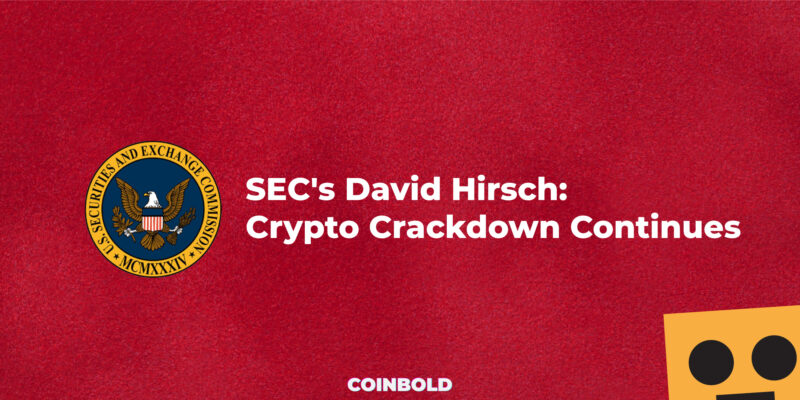David Hirsch, the head honcho of the SEC’s Crypto Assets and Cyber Unit, has made it clear that the SEC isn’t taking its foot off the gas pedal. The regulatory watchdog is on a mission to investigate and take action against crypto exchanges and DeFi (Decentralized Finance) projects that it believes are skating on thin ice in terms of securities regulations. This latest move comes hot on the heels of the SEC’s dealings with industry giants Coinbase Inc. and Binance.
The SEC’s Swift Stance on Compliance
The SEC’s enforcement office, under David Hirsch’s vigilant leadership, is setting records by handling legal cases with unprecedented speed. The SEC isn’t just stopping at Coinbase Inc. and Binance; it has a watchful eye on other companies that might be treading a similar path.
During a recent appearance at the Securities Enforcement Forum Central in Chicago, Hirsch made it abundantly clear that violations of industry rules aren’t an exclusive club limited to these two behemoths. “We’re going to continue to be active as intermediaries,” he asserted.
Hirsch further emphasized, “That can be brokers, dealers, exchanges, clearing agencies, or any others who are active in this space, are within our jurisdiction and not meeting their obligations, either through registration or failure to provide adequate or complete disclosures.”
The Litigation Landscape
Hirsch candidly admitted, “We do have a lot of litigation going on.” The SEC’s proactive approach to litigation signifies its unwavering commitment to maintain the integrity of the crypto industry by ensuring adherence to regulatory norms.
Navigating Challenges in Crypto Regulation
While the SEC is steadfast in its quest to regulate the cryptocurrency landscape, Hirsch acknowledges that the road ahead is far from smooth. The crypto realm is a bustling marketplace with over 25,000 different tokens and a myriad of cryptocurrency exchanges.
Hirsch draws attention to the daunting reality that there are more active projects in the crypto space than the SEC or any other government agency can effectively oversee, primarily due to resource constraints.
In this dynamic and rapidly evolving ecosystem, the SEC finds itself in a delicate balancing act between enforcing regulations to protect investors and acknowledging the limitations imposed by the sheer scale of the cryptocurrency industry.
In conclusion, the SEC’s unwavering commitment to regulating the cryptocurrency landscape reflects its dedication to safeguarding investors and maintaining the integrity of the market. As the crypto industry continues to expand, the SEC’s role in ensuring compliance and enforcing regulations becomes increasingly crucial.







